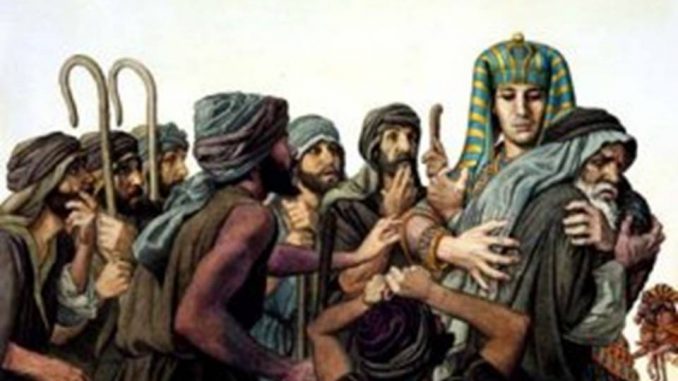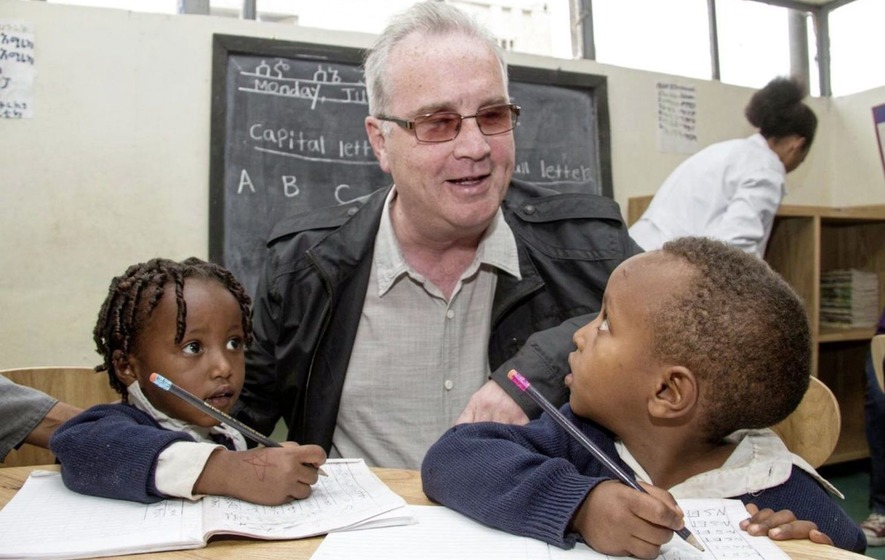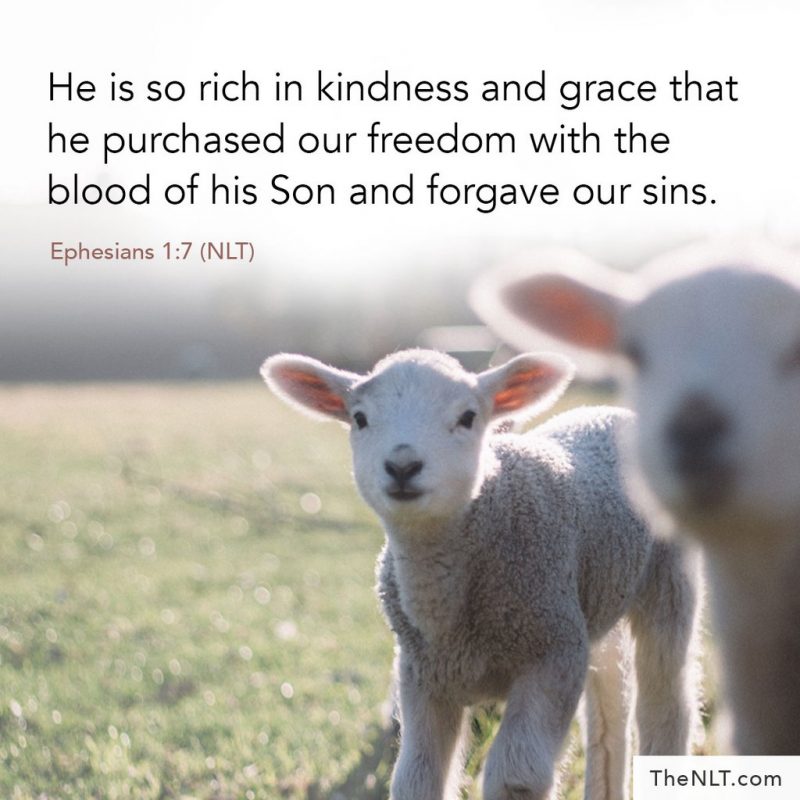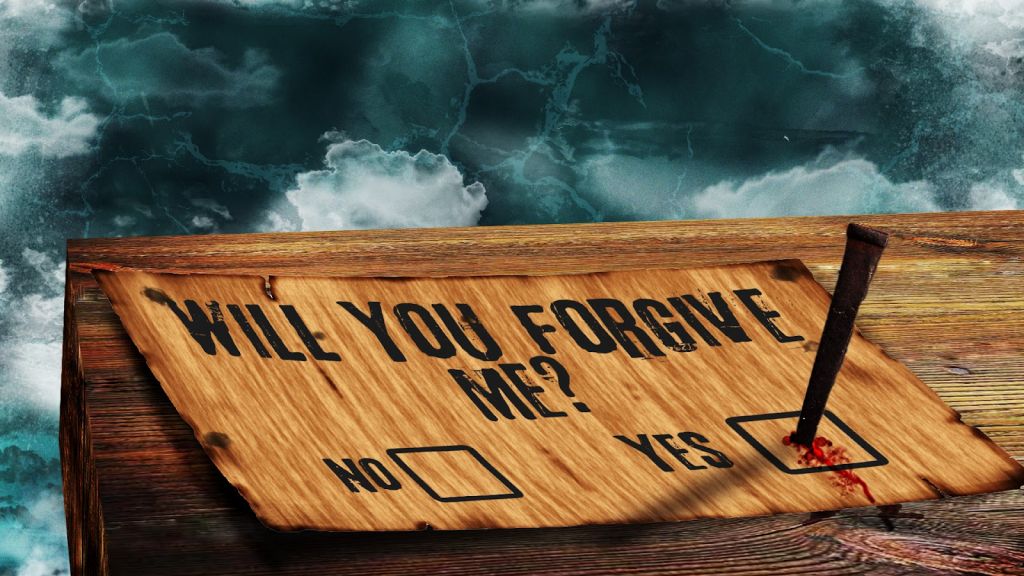
Forgiveness is one of the hardest things to give away, especially to those who don’t even deserve it. Yet we know that Christ’s work on the cross for the salvation of mankind is essentially about the forgiveness of our sins. Throughout the Bible, many stories and parables point us to forgiveness. Therefore, as followers of Jesus, we are committed to being a forgiving people, not just for one offense but towards cultivating forgiveness as a virtue with us all the time. We are taught to:
Be kind and compassionate to one another, forgiving each other, just as in Christ God forgave you. (Ephesians 4:32 NIV)
Sold into Slavery
One of the most touching testimonies of forgiveness in the Bible is the story of Joseph (Genesis 37-50). When Joseph was a young boy, his brothers, in a fit of rage and jealousy, sold him to an Egyptian slave trader. After being a slave for several years, Joseph was thrown into prison by his master for a crime he didn’t commit. Though Joseph faced many trials, he remained faithful to God who blessed him with the ability to interpret dreams. When no one could interpret Pharaoh’s recurring dreams, Joseph was able to tell Pharaoh that his dreams foretold that Egypt would enjoy seven years of prosperity followed by seven years of famine. Impressed by Joseph’s ability, Pharaoh made him his second-in-command to oversee the food supply for the entire nation of Egypt.
During the famine, Joseph came face to face with his brothers who had travelled from their famine-stricken land to Egypt, to purchase grain for their families. Recognising his brothers, Joseph was overcome with grief and wept secretly. Because of their petty jealousy, they had deprived Joseph of growing up with his family. If not for the grace of God, he could have languished his entire life in prison in a foreign land. The sufferings that his own brothers had caused him were unforgivable.

But Joseph’s strong character, moulded by his faith and love for God, gave him the strength to forgive his brothers. He did not hold a grudge against them nor used the opportunity to take revenge on them. Instead, he showed them compassion and kindness and lovingly reassured them:
Don’t be afraid. Am I in the place of God? You intended to harm me, but God intended it for good to accomplish what is being done, the saving of many lives. So then, don’t be afraid. I will provide for you and your children. (Genesis 50:19-21 NIV)
He affirmed that despite his brothers’ evil intentions, God meant it for good. As we walk through difficult and unfair circumstances, we know that God is sovereign and He will work all things, even those that hurt us most, for good in our lives.
Blinded by a Bullet
Richard Moore was shot and blinded by a rubber bullet at the age of ten. His remarkable story of courage, compassion, and forgiveness, when he chose to forgive the British soldier who shot him, affirmed that we can forgive the unforgivable.
Richard lost one eye and the sight of the other when he was shot in the face by the bullet whilst on his way home from school. His family was completely shattered and deeply hurt by what had happened to young Richard. There were a lot of tears and sorrow but never anger. His parents were deeply religious, led a peaceful life, and believed strongly in non-violence. Despite the family’s trauma, Richard recalled that he never once heard bitter or angry words from his parents. He attributed his ability to forgive, without any residual anger or bitterness, to his parents, being surrounded by a loving family and the support of a warm, close-knit community. They all cushioned the impact of his blindness so that he could focus on his ability and not on his disability and thus he adjusted very quickly to his new life as a blind person. In fact, blindness became a positive experience in Richard’s life. The person that he is and the work that he does today was shaped by the incident that caused his blindness.
He learned to play the guitar, played in a band, and helped found a folk group where he met his wife, Rita, and is today a proud father of two daughters. He has a university degree and managed two successful businesses in his hometown. In 1997 he founded an NGO called Children in Crossfire, to help children in very difficult circumstances, achieve their potential in schools and in their communities. His most amazing experience is his friendship with the Dalai Lama who considers Richard not only his friend but also his hero. In the foreword of Richard’s book, the Dalai Lama wrote, “While I talk about forgiveness, Richard Moore lives it.”

About forty years after the shooting incident, Richard met Charles Innes, the soldier who blinded him. Charles explained that he shot the bullet to chase away stone-throwers off the army camp and regretted that the bullet caused Richard’s blindness. Richard told Charles he had forgiven him and held no hatred towards him. Since then they have become friends, meeting on several occasions, travelling together to India to meet the Dalai Lama and promote compassion and forgiveness to school children through Children in Crossfire.
Richard’s story of forgiveness has taken him around the world where he has inspired people including the Dalai Lama who counts Richard as a personal friend. Richard shared that “forgiveness doesn’t change the past, but it does change the future”. In choosing forgiveness, Richard moved forward to lead a full and happier life instead of a life of anger and resentment.
He Taught Us to Forgive
Jesus frequently taught about forgiveness during His earthly ministry. In the Lord’s Prayer, we are taught to ask God to “forgive us our debts, as we also have forgiven our debtors” (Matthew 6:12) which means that we are to forgive in the same way we expect to be forgiven.
When Apostle Peter wanted to know exactly how many times he should forgive his brothers, Jesus said “seventy times seven” (Matthew 18:21-22) emphasizing that forgiveness should be unlimited. Since God does not limit how many times He will forgive us, so we should also not limit how many times we will forgive others.

Jesus tells us that God will not forgive our sins if we do not forgive others their sins.
For if you forgive other people when they sin against you, your heavenly Father will also forgive you. But if you do not forgive others their sins, your Father will not forgive your sins. (Matthew 6:14-15 NIV)
Jesus’ crucifixion and forgiveness at the cross is the greatest example of how to forgive and reconcile with one another. Jesus came to earth to redeem us from sin but was falsely accused and tortured. Yet as He breathed his last on the cross, in excruciating pain and agony, He prayed:
Father, forgive them, for they do not know what they are doing (Luke 23:34 NIV).
Whenever there are some deep and hurtful wounds that feel unforgivable, remember Jesus’ suffering at the cross. His act of forgiveness at the cross shows us the way to overcome the pain, the humiliation, the betrayal and the deceit, and most importantly, to forgive. Jesus suffered and felt all these hurts and pain himself and knows how we feel. So if He forgives, He expects us to do the same.

God sent His Son, Jesus, to die and atone for our sins while we were yet sinners, to grant humanity forgiveness and eternal life. This is how great God’s love is for all of us. As Christians and God’s forgiven people, we are all called to forgive without harbouring grudges and bitterness. This is what God expects from all His children.
Bear with each other and forgive one another if any of you has a grievance against someone. Forgive as the Lord forgave you. (Colossians 3:13 NIV)
As followers of Jesus, we have to walk in forgiveness and love, not judgement. We ought to view the person we need to forgive through God’s eyes of kindness and compassion. When we forgive them, we do so through God working in us and not by any righteousness of our own.
Judge not, and you shall not be judged. Condemn not, and you shall not be condemned. Forgive, and you will be forgiven. (Luke 6:37 NKJV)
All of us sin in one way or another, every day. Thus we are all in need of forgiveness daily, from God and from one another. Recognising our own sin and how much we have been forgiven is key to living a life of love and forgiveness.
Forgiveness is ultimately a gift of love we give to the person we need to forgive and to ourselves. We forgive others, not because they deserve forgiveness, but because we deserve God’s peace, joy and blessings, and the healing that forgiveness brings. Nelson Mandela shared upon his release after spending 27 years in prison that “we never heal until we forgive”.

Reference
An Interview with Richard Moore by Sunita Sehmi

About Doreen Lau
Doreen Lau has an abiding heart for the ministry of evangelism. She possesses a deep belief in the power of stories, particularly the gospel, to bring healing, encouragement, and transformation of lives. Doreen writes and shares from a deep reflection on her own journey of faith, one that has been shaped and directed by the Lord. You can read her testimony on https://christianitymalaysia.com/wp/fulfilling-his-purpose/
|Share The Good News|




Leave a Reply